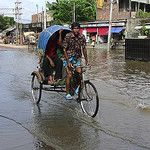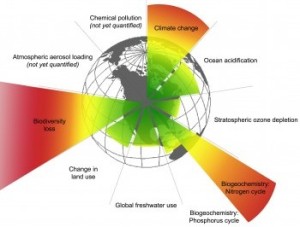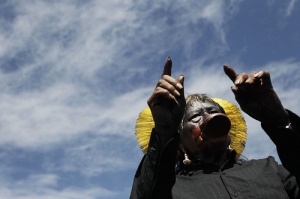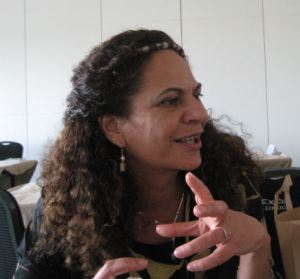Daniel Nelson
Freelance journalist, SciDev.Net
When Terry Cannon accused fossil fuel corporations of genocide for continuing to explore for oil, gas and coal, he caused eyebrows to rise. Yet some of his other remarks to the final session of the conference on community-based adaptation to climate change – and to a short parallel course on monitoring and evaluation – may prove to be both less sensational and more controversial (not least because he told me later that he had not intended to use the g-word).
For example, he questioned the morality of non-governmental organisations that were interested only in the people in their project areas. Given that these projects touched only a small proportion of the public, he said, unless NGOs designed activities so that they could be scaled up without cost, they would be failing. Is that ethical, he asked.
“If we don’t help everyone adapt, there will be hunger and crisis,” he told participants on the course, run by the International Centre for Climate Change and Development, set up in Dhaka by Saleemul Huq, who is also one of the organisers of the conference.
That wasn’t Cannon’s only challenge.
He questioned the very idea of “community”: “Communities are not warm and cuddly… it’s we who find community convenient. It fits in with what we want to do and what funders want. Let’s not be afraid to talk about class and power.”
There was also a need to design top-down policies that would help people adapt to climate change, he said: not a revolutionary idea in itself, but not the sort of language that participants in community-based activities – proud of their bottom-up approach – are accustomed to hearing.
Investment in community-based adaptation was infinitesimal compared with the billions spent annually on subsidies for fossil fuels and agriculture and on fossil fuel exploration: “We are tiny gnats trying to push an elephant,” he commented. “I’m not convinced agencies are interested in scaling up. They are comfortable working in projects.”
Cannon, a research fellow at the Institute of Development Studies in the UK, also said that NGOs needed to experiment if they were to find policies to deal with climate change, and that meant they should seek funds for research rather than projects. It might mean, too, going into partnership with academics and research organisations, and becoming more scientific – donors would demand that they do so.
This blog post is part of SciDev.Net’s coverage of International Conference on Community-based Adaptation which takes place 22-25 April 2013, in Dhaka, Bangladesh. To read further news and analysis please visit our website.




 Posted by scidevnet
Posted by scidevnet 











You must be logged in to post a comment.